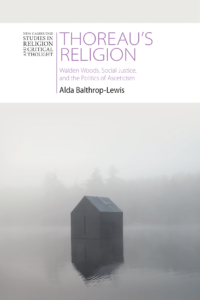By Alda Balthrop-Lewis. Cambridge University Press, 2021.
In “Thoreau’s Religion: Walden Woods, Social Justice, and the Politics of Asceticism,” Alda Balthrop-Lewis presents a ground-breaking interpretation of Henry David Thoreau’s seminal work, Walden. Challenging the traditional view of Walden Woods as a solitary wilderness, Balthrop-Lewis demonstrates that Thoreau’s ascetic life was a form of religious practice dedicated to cultivating a just, multispecies community.
This insightful book makes an important contribution to scholarship in religious studies, political theory, English, environmental studies, and critical theory, by offering the first sustained reading of Thoreau’s religiously motivated politics. In Balthrop-Lewis’s vision, practices of renunciation like Thoreau’s can contribute to the reformation of social and political life. In this, the book transforms Thoreau’s image, making him a vital source for a world beset by inequality and climate change. Balthrop-Lewis argues for an environmental politics in which ecological flourishing is impossible without economic and social justice.
Alda Balthrop-Lewis is a Senior Research Fellow at the Institute for Religion and Critical Inquiry at Australian Catholic University. Her research focuses on religious environmental ethics and the circulation of ideas among theological, artistic, and popular idioms. Her current project is on the Trappist monk Thomas Merton and his reading of race and ecology during the 1960s.
